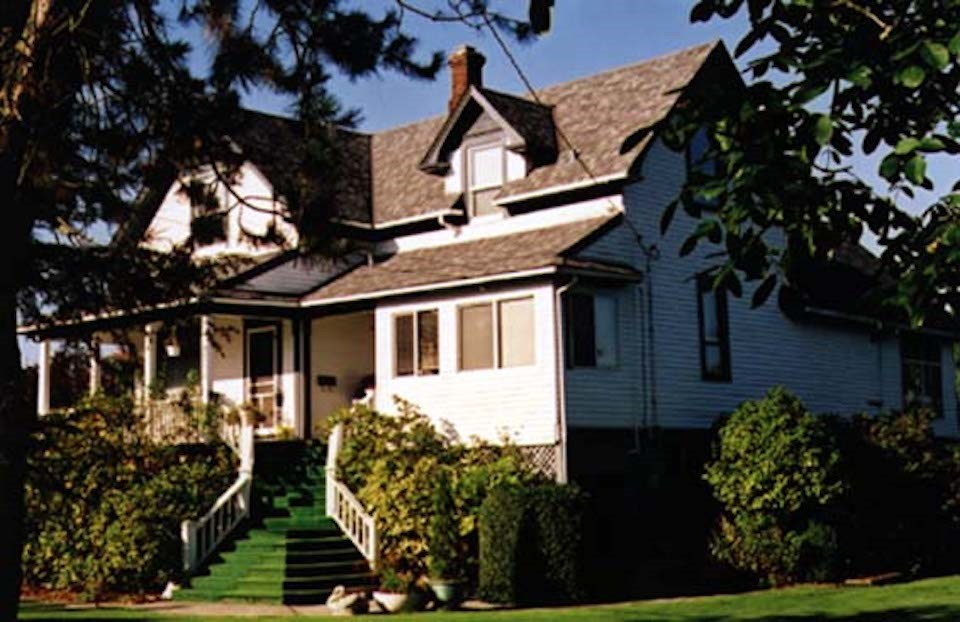The owner of a heritage home in Richmond’s farmland would like to restore the building to its original condition, but has come across some hurdles planning a secondary home on the property.
The architect working on the project, John Henshaw, said it seems “ALC law over-rides everything,” not allowing the owner to build a primary home for herself while restoring the original home.
The plan is to restore the Eldstrom House at 9711 Finn Rd., built in 1912, to create a B&B or use it for some other tourism purpose, and build another home on the property for personal use by the owner.
Henshaw said the Eldstrom House seems to be unusual in Richmond, and possibly in the Lower Mainland, as an original farmhouse.
“It intrigued me because it’s relatively untouched,” Henshaw said.
The house sits on five acres in the Agricultural Land Reserve (ALR). Part of the property is a tree farm and part is rented out for agricultural use by a neighbouring farm.
In July 2021, the provincial government changed the ALC Act to allow secondary homes of about 970 square feet on ALR properties if the principal house is under 5,400 square feet. The Eldstrom House is about 4,500 square feet.
The house has been added to, Henshaw said, but he thinks these additions would be quite easy to take off, reverting the house to its original form. Vinyl siding has also been added to the house and the windows have been changed, but, again, Henshaw thinks these are easy fixes.
In 1987, the City of Richmond designated the Eldstrom House as a heritage house, which means it needs a Heritage Alteration Permit to make changes to the exterior.
Discussions with city planners, however, have indicated the ALC could hamper plans for the second house, Henshaw said, and he’s trying to figure out how it could be done.
The Eldstrom House is only one of four houses in Richmond that have a heritage designation – the other three are the London farmhouse as part of London Farm, the McKinney House on Dyke Road and the Abercrombie House on Princess Street.
The house was assessed by Denise Cook, a heritage consultant, in 2000, and at that time the house was said to be in “very good condition.”
In her assessment, Cook describes the house as “historically significant” to the area “because it has a connection to both the farming and fishing history of the area, and a particular association with the early settlers from Finland who settled on Finn Slough but eventually were able to build houses on Finn Road.”
Furthermore, she adds, the location in the Slough District, is significant because “it was one of the earliest farming districts on Lulu Island, and retains much of its agricultural character today.”
Another heritage home was recently the subject of discussion by Richmond city council, namely the Herrling Residence in the Capstan area.
This property, currently home to the Richmond Capstan Alliance Church, could be consolidated with adjacent properties and redeveloped with residential towers and a new church.
At a recent city council meeting, some councillors were arguing to save the Herrling Residence and city staff are looking into the condition of that building.
The current owner bought the Eldstrom House property in 2020 for about $3.4 million, according to BC Assessment.


